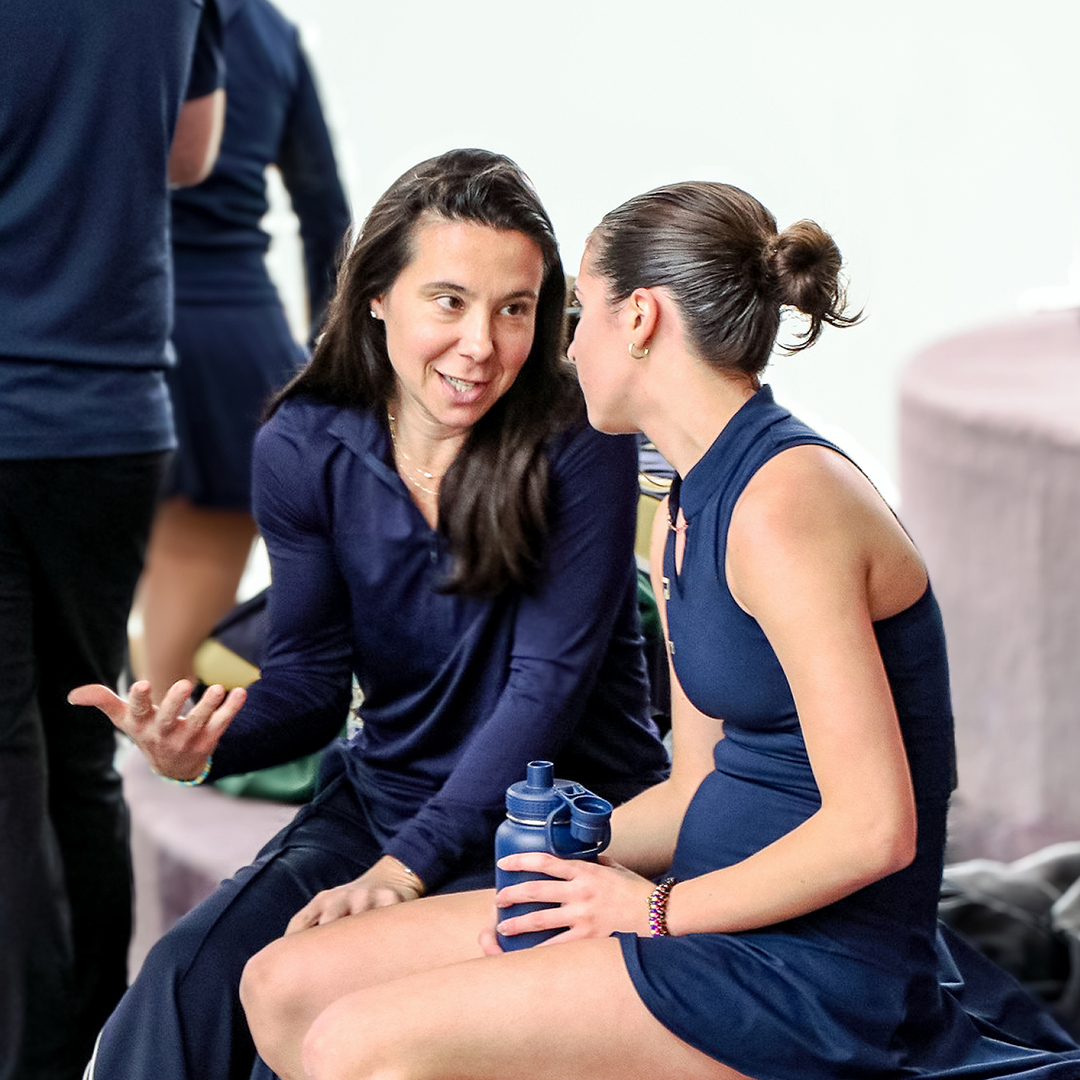Entering the workforce after graduating from college can be overwhelming. Not only are you entering the “real world” and assuming new responsibilities, but you will also have to learn how to navigate workplace dynamics, develop new time management skills, and know when to act as a leader or a team member.
This is daunting to anyone, but some graduates may be more prepared than they realize. Research has shown that the high-achieving mentality developed in a college athletic program can be a powerful catalyst for success in the corporate world.
A study by EY and espnW revealed that 94% of women executives at the C-suite level have a background in sports, and over half of them played at the collegiate level. Former Whole Foods CEO Walter Robb captained the Stanford University soccer team. Meg Whitman, former CEO of Hewlett-Packard and former U.S. ambassador to Kenya, played squash and lacrosse at Princeton University. Bank of America CEO Brian Moynihan was the co-captain of the rugby team at Brown University – and this is just a small sampling of names!
While you don’t have to play a sport in college to be successful, it certainly doesn’t hurt. College athletes carry their competitive spirit into the business world, and an athlete’s determination and detail orientation are just as valuable in a boardroom as they are on the field. Between cultivating the skills of teamwork, time management, and resilience, college sports undoubtedly lay the foundation for success in the workplace.
Let’s take a closer look at what skills collegiate athletes can bring to the table, and how anyone in the workforce can learn from these transferable skills.
Teamwork
The primary – and perhaps most obvious – skill a former student athlete brings to the workplace is a deep understanding of teamwork. In high-level individual and team sports alike, athletes are constantly pushed to leverage each other’s strengths in order to achieve a common goal. A crucial element of teamwork is holding individual weight to contribute to the greater good. If an athlete missteps, the whole team suffers.
This mentality translates into the workplace, where collaboration and communication are integral to success. College athletes understand the meaning of putting a team over individual accomplishments and, upon entering the workforce, are able to translate those skills into group projects and team-based problem-solving.
Transitioning to the workplace, an environment often focused on team success, may be challenging for many recent graduates, who have often spent their academic careers focused on personal success. An understanding of teamwork and collaboration may help make the transition somewhat smoother and easier for college athletes.
Time management
With demanding schedules, discipline and time management are key qualities that athletes develop through their high school and college careers. On top of a normal curriculum load, college athletes are required to juggle practices, conditioning sessions, and competitions.
Maintaining such a complex schedule requires individuals to learn how to balance assignment deadlines with elements such as long-distance traveling tournaments – and a failure to do so can result in poor performance on and off the field. Student athletes, therefore, must remain detail-oriented and meticulous, planning their schedules ahead of time and learning to prioritize.
Managing tight deadlines and balancing a workload while staying focused on short- and long-term goals are skills that college athletes can leverage to make their transition into full-time employment more successful.
Resilience
College athletes must be prepared to experience as many – and sometimes more – defeats as they do victories. Learning how to cope with setbacks and bounce back stronger leads to a firm sense of perseverance and resilience. When facing a setback in their athletic career, students are forced to address challenges with a positive attitude.
This mental resilience translates into the workplace, where it is proven that employees who show determination even after failure or adversity are able to excel past their peers. Emotional resilience is also crucial when transitioning into the workplace, where one must be able to stay balanced and manage various personalities and emotions. Student athletes may have resilient traits that allow them to navigate this new terrain early in their career.
Locker room lessons for everyone
Participating in college sports can help individuals develop qualities needed for success in the office. How can nonathletes replicate this advantage? Here are some pages you can take from a college athlete’s book to adopt a similar mindset:
- Cultivate passion: At the heart of what drives an athlete’s determination and success is passion for their sport, and this passion can help them succeed in their post-grad careers. To maintain focus and drive in all aspects of your work, you need to have some level of passion. Caring deeply about your work inherently means you will be more driven to succeed, less likely to back down in the face of obstacles, and more likely to be conscientious and detail-oriented in what you do.
- Welcome coaching: A central figure in any student athlete’s life is their coach. On a college sports team, you quickly learn that being open to feedback – and seeking it out – is necessary to improving. While you may be reluctant to open yourself to potential criticism, feedback from a boss or mentor is invaluable for the learning moments it provides. Moreover, developing relationships with mentors will show your team and managers that you are always willing to learn and driven to succeed.
- Know when to step back: Just as important as being able to lead a team is knowing how, and when, to follow the leader. If every athlete tries to be the one making every call every time, chaos ensues. The best teams are ones that can comfortably shift leadership roles from player to player, moment to moment, and game to game. This mindset of shared leadership applies to teams off the field, too. Knowing when it’s your job to step back so that someone else on your team can step up is essential to achieving a goal.
College athletes know that success is not automatically achieved; it’s earned through dedication and hard work. This mindset is seen in the workplace, as college sports alumni take on challenges and seek to achieve excellence early in their careers. They often possess valuable skills that every recent graduate, not only former student athletes, can cultivate as they prepare to enter the workforce.
For more information on setting yourself up for success and managing your goals, reach out to our Next Generation Experience team.
Contact Us
Brown Brothers Harriman & Co. (“BBH”) may be used to reference the company as a whole and/or its various subsidiaries generally. This material and any products or services may be issued or provided in multiple jurisdictions by duly authorized and regulated subsidiaries. This material is for general information and reference purposes only and does not constitute legal, tax or investment advice and is not intended as an offer to sell, or a solicitation to buy securities, services or investment products. Any reference to tax matters is not intended to be used, and may not be used, for purposes of avoiding penalties under the U.S. Internal Revenue Code, or other applicable tax regimes, or for promotion, marketing or recommendation to third parties. All information has been obtained from sources believed to be reliable, but accuracy is not guaranteed, and reliance should not be placed on the information presented. This material may not be reproduced, copied or transmitted, or any of the content disclosed to third parties, without the permission of BBH. All trademarks and service marks included are the property of BBH or their respective owners. © Brown Brothers Harriman & Co. 2025. All rights reserved. PB-08780-2025-07-25



